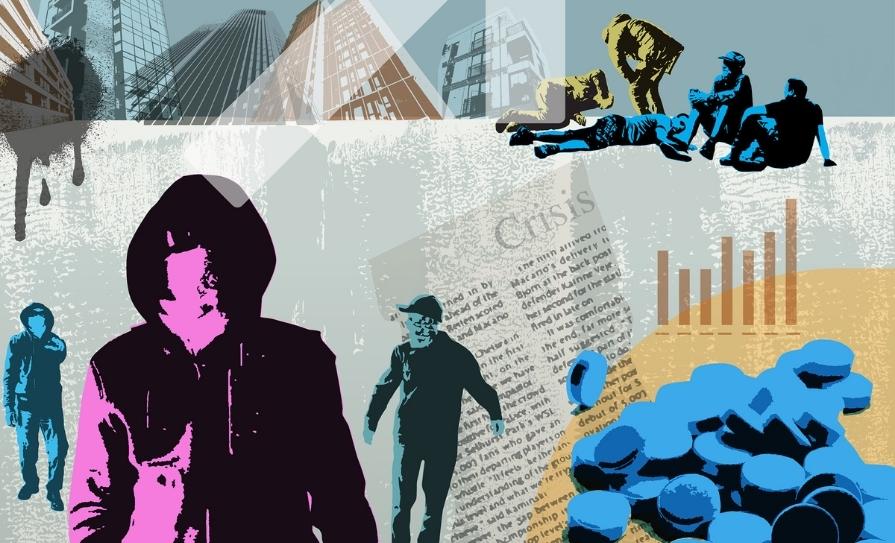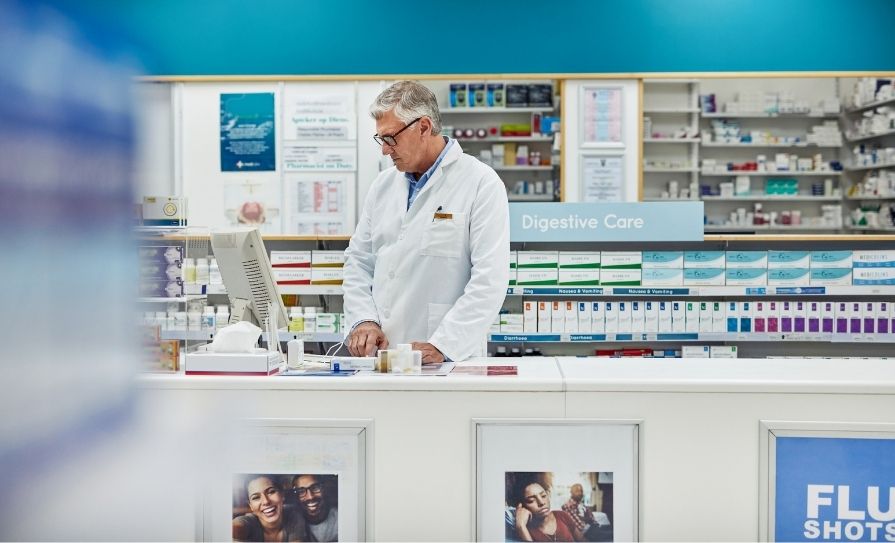As the debate about drug decriminalisation raises its head again, Dr Des Corrigan hopes the discussions will be based on scientific facts and not propaganda
If I had a euro for every time a politician, lobby group, columnist or celebrity called for the legalisation or decriminalisation of drugs, I would have no reason to be concerned about the present level of inflation. Such calls date back to at least 1968, when I first became involved with our drugs problems. The latest instalment appeared before Christmas when the Joint Oireachtas Committee on Justice issued a report with a series of recommendations on sanctions for possession of certain drugs for personal use. The Committee recommended that a policy of decriminalisation be pursued and that the practice of cultivation of currently illicit substances at a modest non-profit level be examined and that steps be taken to introduce a regulatory model for certain drugs.
One of the central motivations for the Committee’s approach arose from claims that the rate of drug deaths in Ireland were among the highest in Europe. What struck me as odd was the response of the politicians, which was to suggest the decriminalisation of the cultivation of cannabis plants — drugs which have never killed anyone in overdose, and probably never will. So,
I ask myself, how can decriminalised, or legalised, or ‘regulated’ cannabis drugs reduce the level of deaths due to alcohol, heroin, methadone or benzodiazepines?
It seems to me that this is ideology and not evidence-based policy-making.
Political commentary on the Justice Committee report was jaw-dropping. One TD who should know better told the Dáil, according to RTÉ News: “It is not drugs that kill people, its bad drug policy.” I had to read this several times just make sure it said what I thought it said. I am not sure if it is a coincidence or not, but this quote is very similar to one in a July 2022 statement from a body calling itself the International Drug Policy Consortium promoting “person-centered, rights-affirming drug policies globally”, claiming that “drugs don’t kill: Bad drug policies do.” How does one take such toxicology denial seriously? To imply that drugs such as heroin, cocaine, methadone and fentanyl, for example, are not lethal poisons flies in the face of the toxicological evidence. Nonsense such as this can only add to the pain of the families of the hundreds of those whom coroners around the country have determined, on the basis of the toxicological evidence, died from the direct toxic effects of one or more identified drugs. Again, this is not evidence-based policy-making, it is ideology that conveniently ignores facts by perpetuating a myth that legalised regulated drugs would be safer than street versions. This is wishful thinking, ignoring the fact that pharmaceutical-grade heroin for example, at 98 per cent purity, is likely to be more lethal on a weight-by-weight basis than street heroin that is just 40 per cent diamorphine. One wonders about the impact of such propaganda on impressionable young people if or when they are faced with a decision to use a particular drug.
I did not know whether to laugh or cry when I read the statement from the chairperson of the Justice Committee supporting the idea of a regulated market in drugs. He stated: “In the regulation would be a concept of actually having a commercial product and having the product available which can be monitored, managed, licenced, weighed, tested for compliance, for safety, for content in a way that it clearly is not at the moment.” Where do I begin? Firstly, that reads more like full-blown legalisation by stealth rather than decriminalisation (where drugs are still illegal, but there is no criminal sanction for possessing them for personal use). Secondly, we have abundant experience with a number of commercially available regulated drug products, including alcohol, tobacco, methadone, benzodiazepines and pregabalin. It seems to have escaped the notice of the politicians that these are the very drugs that kill people in such large numbers in this country. In fact, 67 per cent of the 376 deaths due to drug poisonings reported in the last year (2017) for which data is available from our excellent National Drugs Related Deaths Index (NDRDI) involved prescription or over-the counter licit drugs that have of course undergone extensive quality and safety testing. So, legalised, regulated drugs cannot be said to be the answer to the question of overdose deaths, as our political masters would have us believe.
It now appears that we are to have a Citizen’s Assembly during 2023 to discuss changes to our drug laws
I found the reference to safety testing ironic when the evidence base on the harmfulness of these drugs is available for all to see. The whole concept of the testing regimens put forward by these politicians also begs the question as to who will pay for this regulatory utopia. Will it be the cannabis industry (‘Big Pot’) for example, who will undoubtedly pass on the costs to their consumers, thus influencing price and thereby laying the groundwork for the black market to continue to thrive, as it has in California? The Governor of that State recently warned that California’s licenced cannabis industry was on the verge of collapse because of the still flourishing black market. So much for getting rid of organised crime involvement in the drugs trade. Or will it be the long-suffering taxpayer who will be expected to bear the regulatory costs, thereby subsidising a multi-billion-dollar industry and by extension their customers, whilst simultaneously paying for the inevitable damage to public health and to the environment? If a pharmaceutical company did as much environmental damage and created as much toxic waste as the recreational drugs industry does, I have the feeling that those loudest in their support for repealing the Misuse of Drugs Acts would be to the forefront of efforts to close such a company down. Some politicians seem oblivious to the hypocrisy of opposing environmental pollution while acting as cheerleaders for one of the most polluting industries on the planet.
It now appears that we are to have a Citizen’s Assembly during 2023 to discuss changes to our drug laws. According to The Journal.ie, the new Taoiseach stated that he had no view on cannabis legalisation as he did not want to prejudice discussion at the Citizen’s Assembly. He went on to say that in the past “we’ve seen that they’ve [Citizen’s Assemblies] demonstrated that the public are ahead of the politicians”. It remains to be seen if that is the case when it comes to changing our drug laws. One hopes that the Assembly will consider the consistency of the overwhelmingly negative attitudes to people being permitted to use Cannabis for recreational use, as recorded in five separate General Population Surveys conducted between 2002 and 2019. It will be interesting to see if it recommends the holding of a referendum, as happened in New Zealand, where a proposal to legalise cannabis was defeated, or perhaps even to enshrine a spurious constitutional right to chemical intoxication, given the emphasis on ‘rights’-based approaches espoused by advocates for change. In any event, I would like to think that these deliberations will be evidence-based and free from propaganda paid for overtly or covertly by ‘Big Pot’ hoping to profit from a change in our drug laws. ?
Dr Des Corrigan, Best Contribution in Pharmacy Award (winner), GSK Medical Media Awards 2014, is a former Director of the School of Pharmacy at TCD and won the Lifetime Achievement Award at the 2009 Pharmacist Awards. He was chair of the Government’s National Advisory Committee on Drugs from 2000 to 2011. He currently chairs the Advisory Subcommittee on Herbal Medicines and is a member of the Advisory Committee on Human Medicines at the IMB. He is a National Expert on Committee 13B (Phytochemistry) at the European Pharmacopoeia in Strasbourg and he is an editorial board member of the Journal of Herbal Medicine and of FACT — Focus on Alternative and Complementary Therapy.







